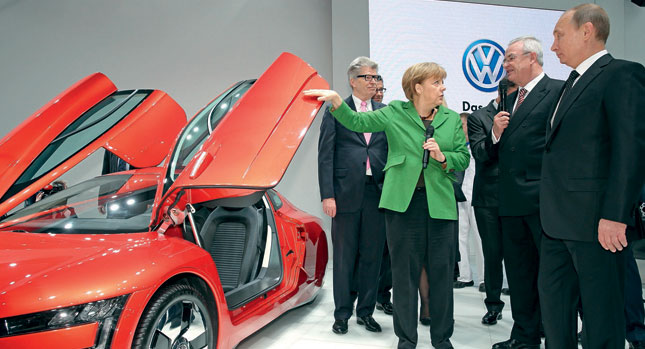As the leader of Europe’s biggest car producing country, German Chancellor Angela Merkel can’t ignore the industry’s complaints. The biggest one from Germany’s auto sector regards the 2020 EU-imposed environmental targets, which they view as tough and potentially harmful for innovation and economic growth.
Merkel, who is running for a third term in office on September 22, has already blocked a deal in June that would have set the EU’s car industry an ambitious target to reduce CO2 emissions by 2020.
“Europe must learn that we are not an isolated continent but that we must succeed in global competition. We need to look beyond our borders – push for open and free trade, but at the same time not impose greater burdens on our industry than other continents do with their own industry,” Merkel said at the Frankfurt Motor Show.
The German Chancellor was backed up by Matthias Wissmann, chairman of Germany’s VDA auto industry association, which includes luxury brands Audi, BMW and Mercedes-Benz. Premium car manufacturers are the most affected by the EU’s stricter CO2 targets as they build vehicles with large, powerful engines.
“Lawyers and bureaucrats have to listen to the engineers with their technical know-how. The automotive industry will not make a good political pawn to be tossed between officials’ desks in Brussels,” Wissmann said.
Merkel added that innovation in the auto industry appeared in the luxury market before being adopted by smaller cars.
It is not clear whether Germany simply wants to delay the new EU agreement on stricter CO2 emission rules for new cars until after the elections or to overturn the deal altogether.
By Dan Mihalascu
Story References: Reuters
PHOTO GALLERY






